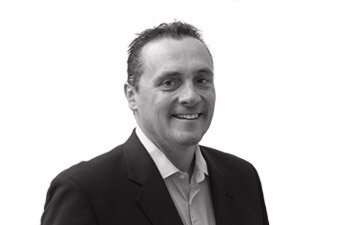Anthony Bishop, who leads Cochlear in the Asia Pacific region, says one of the most impactful parts of his job is the ‘humbling’ experience of meeting the families of profoundly deaf children who are able to hear for the first time.
Mr Bishop has been with the Australian company for more than four years having previously served in a series of senior roles over 21 years with Johnson & Johnson Medical.
Australia is the largest commercial market in his region, which also includes Korea, and Mr Bishop says his current role has been “one that has really enabled a very close connection with patients and their families.”
“This is a very humbling experience – to see the impact when you meet the children and their parents.
“One thing we should never forget is the wider impacts for children born profoundly deaf. Around one-third have other disabilities and that means earlier intervention with an implant has enormous benefits in terms of educational and life opportunities,” he said.
Mr Bishop said the situation for Australian children, who are screened at a young age to identify the need for early intervention, is not matched in other countries like China or India.
“We are working to raise awareness in these markets,” he said, adding that a significant proportion of the world’s population lives with a disabling level of hearing loss.
This equates to over 450 million people but is expected to rise to around 900 million by 2050.
Mr Bishop said the number of people with an implant represents a small proportion of the around 7.5 million who would benefit.
While the situation for Australian children is positive, Mr Bishop said more action is required for seniors where one-in-three suffer from hearing loss.
“We advocate for the screening of seniors around the world but that also includes Australia.
“Over 99 per cent of Australian children who need an implant get one. For adults, that is only 10 per cent, and this is a problem because of research that shows the impact of hearing loss on things like social isolation, anxiety, depression and cognitive decline.
“People really just want to get on with their lives but nobody should have to live with hearing loss if there is a solution.”
He said the company is focussed on innovation, building the market and access globally and patient satisfaction.
“We think patient satisfaction is an emerging and incredibly important measure. Our own research shows patients with bilateral hearing aids report very low satisfaction – of around 9 per cent – this rises ten-fold when they have an implant in one ear with our Nucleus 7 Sound Processor and a hearing aid in the other.”
Mr Bishop said Cochlear, which was established in 1981, has a history of success because it has always focussed on innovation and looked to the global market.
“We are an Australian company with a global outlook,” he said. “We look for developed and emerging markets everywhere and that include the Asia-Pacific region.”
